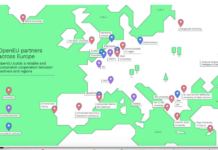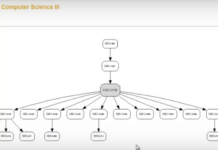Stacey, P. (2011) Teaching science online Musings on the Ed Tech Frontier, October 6
This is a fascinating article about using remote web-based science labs for teaching high school and first year post-secondary science online.
Instead of simulating a lab or providing a lab kit for the distance education student to use at home, the Remote Web-based Science Lab allows students to perform experiments by remotely controlling real lab equipment over the Internet.
This reports on a major collaborative effort between Canadian and US universities and colleges, driven partly by the need for more science graduates and more access to laboratory methods. The article is extremely informative about the challenges and potential of teaching science online, with great online links and diagrams.
It also has some interesting observations about developing collaborative science open educational resources (which these science labs will be) and integrating them into existing curricula.
Required reading for anyone interested in teaching science or engineering online.
Comment
I really hope this project is successful and convincing. There is tremendous need for more science and engineering students worldwide and especially in developing countries access to modern labs is almost possible for many potential students.
The trick is to be clear as to what learning outcomes can and cannot be taught remotely. Increasingly real applications in engineering, medicine and science depend on remote operation, for safety and access reasons, so for such skills this kind of remote lab work will fit well. Also, many years ago, the Open University Science Foundation course team sat down and disaggregated the whole of the first year science curriculum, determining which skills needed to be taught hands-on through home experiment kits, what could be taught abstractly, through text, and what required demonstration only (to be delivered by television). This left a small component of the curriculum that needed to be taught through summer school at conventional university labs.
This suggest the need to be flexible, to look at more than one solution, but remote controlled labs have the potential to scale and to cover some core learning outcomes in science and engineering.










 Dr. Tony Bates is the author of eleven books in the field of online learning and distance education. He has provided consulting services specializing in training in the planning and management of online learning and distance education, working with over 40 organizations in 25 countries. Tony is a Research Associate with Contact North | Contact Nord, Ontario’s Distance Education & Training Network.
Dr. Tony Bates is the author of eleven books in the field of online learning and distance education. He has provided consulting services specializing in training in the planning and management of online learning and distance education, working with over 40 organizations in 25 countries. Tony is a Research Associate with Contact North | Contact Nord, Ontario’s Distance Education & Training Network.


Fine idea, but wouldn’t that just make the students lazy? And won’t help them in other labs because all labs are not remote-controlled?